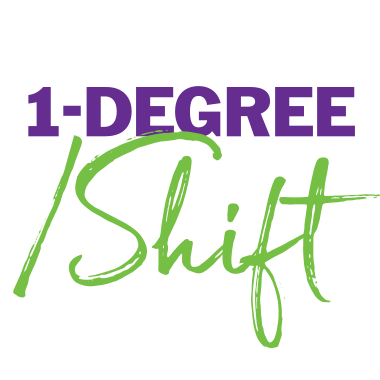In today’s world, the amount of information coming at us – through emails, at meetings, in the news, through our social feeds – is overwhelming the capacity of our brains to process.
Today’s leaders are also faced with significantly more complex problems to solve. The number of variables to consider for any decision is higher. When there are just two or three factors to consider, most of us can usually solve problems quite easily. But with five or six moving parts, most of us find it incredibly challenging to hold all of those moving parts in our memory as we analyze alternative options and courses of action. This can result in an exhausting process of thinking and re-thinking. Most of us consistently deal with that feeling of being overwhelmed. What can we do about it?
Successful business leaders like Warren Buffett, Richard Branson and Steve Jobs have proven to be strong in complex decision making.
As Jobs once said, “I began to realize that an intuitive understanding and consciousness was more significant than abstract thinking and intellectual logical analysis.”
These thought leaders have consciously developed their Intuition. This will help them synthesize a significant amount of data and make a call based on some extra-sensory process. This is Intuition at play.
The intuitive process involves accessing information on many levels and beyond the obvious. The primary way most of us gather information about the world is through our five senses. We learn to trust only that which we can hear, touch, smell, see or taste and all of these senses are connected to our brain which analyzes, calculates, sorts and categorizes everything so that we know how to operate and move. The problem with this is that too much emphasis has been placed on Intellect as the relevant mode of synthesizing and working through problems in our world, and not enough emphasis has been placed on our Intuition.
What is Intuition and how does it fit in with quality decision making?
Each of us has three inherent components to the way that we are able to process information. We have our Instincts. These instincts operate in the reptilian brain and are activated by fear. Instincts operate below the level of our consciousness and we are often not at all aware of how our emotions are directly linked to how that subconscious part of our brain reacts to the world.
The second component is our Intellect, the dominant mode of operating for most of us. The Knowledge economy has put our intellects into over-drive. We see things logically. We analyze. We seek solutions. We explain decisions based on rationale. In business and indeed in the world, we are expected to explain ourselves with the order of logic as the base.
The third part of the basic make-up of each human being is the Intuition. This is “standard equipment” for all of us but, for the most part, we either don’t use it or over-ride it with explanations that come from the Intellect.
But Intuition works at a higher level than logic and intellect. Most people can recall a time when they have been hit with the insight of an intuitive moment. Usually, it is the perfect answer that was sitting there all along and we are surprised that we didn’t see it in the first place.
The challenge is that the Intellect and the Intuition speak different languages and part of developing the Intuition is to have our Intellects learn the language of the Intuition. By training ourselves to quiet the Intellect (and our Instincts), we can better access the Intuition. Without this learning, the rational brain will be frustrated and we will continue to do what is logical.
What are the benefits of developing Intuition?
Leaders who learn to develop their Intuition are able to:
– Reduce stress and, as a result, take actions that are less reactive;
– Get to solutions faster and see problems with more clarity;
– Access greater creativity and innovation because their mental agility is improved;
– Engage people’s hearts, spirits and minds – not just their intellects;
– Help others develop their intuition and thereby tap into the collective intuition where the possibilities are endless;
– Continue to be given more responsibility to match their increased capability.
The process of accessing Intuition involves developing the capability to be quiet and learning to hear “the voice within”.
Intuition speaks to us in ways that are different than the usual thoughts. It is a “meta” communication mode, meaning that significant information is packed densely into images, feelings or awareness. It is more abstract. Our usual rational mind which formulates thoughts cannot easily grasp this meta communication without disciplined development.
Intuition is a skill that is little discussed in the business world. Yet it can be developed and each one of us can learn to use this capability on demand. Here are a few tips to develop your Intuition:
- Practice being quiet. Mentally, emotionally and physically. The intuition cannot be heard over the freight train of thinking in our heads. This is tough in our busy world! A daily mindfulness practice or meditation routine can make a big difference. Even if it is for only 10 minutes a day. The ability to clear the head and manage the emotions when in a difficult situation is a critical skill. The ability to be “here and now” is necessary to tap into our intuition.
- Learn to hear and understand how your Intuition speaks to you. Each one of us is unique and the process of grasping abstract messages from your Intuition and translating that accurately into a mental idea is something that requires practice.
- Engage the abstract or creative mind to help sharpen our mental agility. Again, each of us has unique proclivities so this can include activities like reading or discussing philosophy, practicing yoga or other creative pursuits like song-writing, singing, painting, etc.
At 1-DEGREE/Shift we are motivated to teach and develop the skill of Intuition. We believe that everyone has this capability. Workplaces that invoke and nurture intuition are less likely to be places activated by fear. If you are inspired to better access and activate intuition within your organization, reach out to us for a complimentary discovery call.


